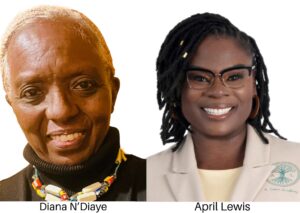
The headlines from coast to coast this month grabbed my attention. For the first time in decades, leading media were reporting on bold moves by major city mayors — Karen Bass (no known relation) of Los Angeles and Eric Adams of New York — to clear out the severely mentally ill homeless from public spaces in their respective cities.
My first reaction? Finally, leaders were stepping up to do what should have been done years ago by addressing the systemic shortcomings of mental health policy dating back to deinstitutionalization. But as I delved deeper into the news reports, the familiar players of the mentally ill care debate were singing the same short-sighted tune. The mentally ill have rights. They deserve to be free to live without discrimination from having a condition that was no fault of their own. That’s all very true.
Here’s the problem with the civil liberties and human rights advocates’ stance: they “freed” a group of people who were suffering, but they never took up the mantel of ending their suffering. They let the problem fester for over 40 years. But the neglect cannot be laid at disability rights advocates’ doorstep alone.
Blame for disastrous mental health policy can be laid on the porches of entire communities of ostrich-like leaders and institutions that had the power to make a difference and complete the overhaul of mental health policy in America and did not. They include the executive branch, yes, Presidents, which manage SAMSHA, the American Psychiatric Association, the American Psychological Association, and elected officials, particularly in Congress, from both parties. Instead, they took incremental, yet inconsequential, steps toward solving the severely mentally ill health crisis.
Let’s not leave out the media. Only recently have suicides been treated as newsworthy subjects, justified by the rising trend of youth suicide and mental-health-related police interactions gone bad. With the rise in mass shootings and gun legislation debates, media chatter devolves into scapegoating that further marginalizes the mentally ill with disdainful and archaic references, like “wacko” and “nut job,” that perpetuate stigma and ignorance about the impact on society of mental disorders that could be addressed in a humane and enlightened manner. Owners of media outlets viewed by millions of people that allow such language to support the gun lobby should be held accountable by the Federal Communications Commission.
But times may be changing. Grassroots efforts are percolating among advocates for mental health solutions, particularly for those who are Black, Indigenous, and People of Color, who are tired of the gaps in continuity of care, lack of accountability in the mental health industry, abuses in correctional institutions, and inaction in the halls of Congress. White papers and reports about the problem are being seen for what they are: smokescreens designed to appease and distract from the lack of systemic change. Our nation’s mental illness problem is not a tin can that we can keep kicking down the street until it is out of sight. The danger of persisting in that kind of behavior is clear and present.
I don’t know what the endgame is for Mayor Adams or New York Lawyers for the Public Interest and their co-plaintiffs. But there’s no time or public patience for business-as-usual legal or political posturing in the wake of this crisis. It has cost too many lives. Just fix it.




